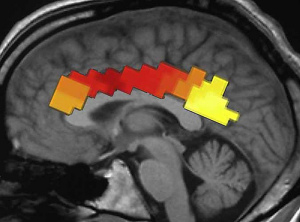Parent-Child Attachments and the Middle Prefrontal Cortex — Part 2
 If one or both of your parents, due to their own biology, backgrounds, and experiences, were unable to be sufficiently attuned to you to create a secure parent-child attachment, you’re bound to be experiencing less than optimal functioning in one or more of the seven abilities promoted by secure parent-child attachments.
If one or both of your parents, due to their own biology, backgrounds, and experiences, were unable to be sufficiently attuned to you to create a secure parent-child attachment, you’re bound to be experiencing less than optimal functioning in one or more of the seven abilities promoted by secure parent-child attachments.
- Maybe in certain situations your heart has a tendency to beat too fast or your intestines churn too much (problems regulating your body).
- Maybe you have a hard time tuning in to other people’s feelings, resonating with them enough to understand what they feel, what they want, even what they may be trying to tell you (problems with attuned communication).
- Maybe it’s difficult for you to modulate your emotions and instead you feel your emotions are taking you on a roller-coaster ride or that you don’t feel your emotions at all, that you simply can’t see why feelings are such a “big deal” (problems with emotional balance).
- Maybe you can’t stop yourself from acting impulsively and you find it difficult to weigh different options and choose the most appropriate ones (problems with response flexibility).
- Maybe you find it hard to reflect on your past to see what it tells you that’s actually applicable to the present or future and what is not (problems with insight).
- Maybe it’s difficult for you to put yourself in the place of others, to imagine what it would be like to look at the world from their perspective (problems with empathy).
- Maybe it’s hard to monitor and calm down your fear when it would be helpful to do so (problems with modulating fear).
All of these are related to the functioning of your middle pre-frontal cortex, and healthy functioning in these areas is associated with secure parent-child relationships. (Many believe that the eighth and ninth executive functions—being in touch with intuition and morality—may also be promoted by secure parent-child relationships, but the research hasn’t been done yet to test his hypothesis.)7
An excerpt from my recent book, Your Mind Is What Your Brain Does for a Living, now available at Amazon.
photo credit: Image Editor via photopin cc
- 8 Dec, 2014
- Posted by Steve Fogel
- 0 Comments



COMMENTS